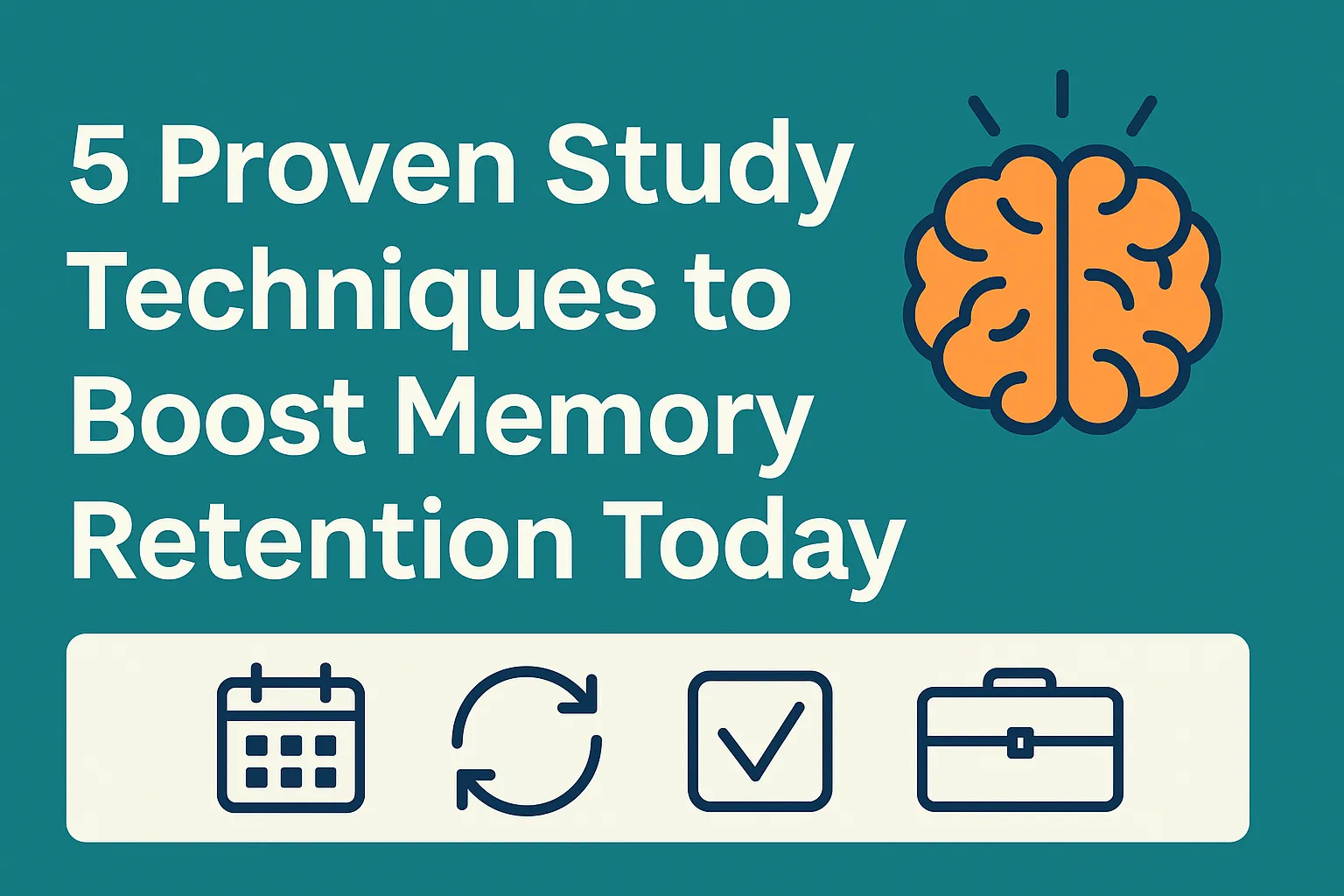Why Making Learning Difficult Boosts Memory Retention 💡🧠
Brought to you by SmartExaminers.com – Your AI-powered tool for generating exams and answers based on any curriculum, downloadable in editable Word format.
Introduction 📘
Why does struggling through a tough math problem help you remember it better than breezing through a quiz? 🤔 In this article, you'll learn how desirable difficulties—those small but challenging roadblocks—can dramatically improve your memory and long-term learning. We'll explore the science, real classroom stories, and actionable techniques to make "harder" learning your secret weapon. 🛠️
🎯 The Psychology Behind Desirable Difficulties
What Are Desirable Difficulties? 🧗
Coined by cognitive psychologist Robert Bjork, desirable difficulties refer to learning tasks that are more effortful but ultimately enhance retention and understanding.
Examples:
- Testing yourself rather than rereading notes 📖
- Mixing up topics during study sessions
- Delaying review instead of immediate repetition
Why Do They Work? 🧬
- Effort Signals Learning: When the brain works harder, it encodes information more deeply.
- Retrieval Strengthens Memory: Struggling to recall = stronger memory pathways.
- Interleaving Builds Connections: Mixing subjects helps your brain recognize patterns, not just facts.
"Learning isn’t about how fast you can cram; it’s about how well you can recall when it counts."
🏫 Real-World Evidence: Classroom Applications
Case Study: A High School Science Class 🧪
A teacher implemented low-stakes quizzes after each topic and delayed reviews instead of immediate ones. Over a semester:
- Students improved test scores by 18%.
- 70% reported higher confidence in recalling older material.
Experience From a University Student 🎓
"I used to reread textbooks and feel like I knew everything. But when I tried self-testing and spaced practice, I remembered more during exams. It felt harder, but it worked."
🔁 Techniques That Add Desirable Difficulty (And Why They Work)
1. Retrieval Practice 📤
- Try recalling answers from memory rather than reviewing notes.
- Tools: Anki, Quizlet, flashcards.
🧠 Why it works: Forces your brain to actively reconstruct knowledge.
2. Spaced Repetition ⏳
- Space your study sessions over days/weeks.
- Don’t cram the night before.
🧠 Why it works: Each spaced session strengthens the neural link.
3. Interleaved Practice 🔀
- Mix different subjects or problem types.
🧠 Why it works: Trains the brain to differentiate and apply concepts.
4. Varying Study Contexts 🌍
- Study in different locations or times of day.
🧠 Why it works: Enhances your brain’s ability to recall under varied conditions.
5. Teach What You Learn 👩🏫
- Explain the topic to someone else or out loud to yourself.
🧠 Why it works: Requires deeper processing and mastery.
💥 Counterintuitive Truths About Learning
"If It Feels Easy, You're Probably Not Learning Much."
- Fluency illusions (thinking you know something just because it feels familiar) mislead many students.
Making Learning Hard Can Be Motivating (If Framed Right)
- Knowing that difficulty = growth can change student attitudes.
Grades Improve When Students Embrace Challenge
- Studies show students who adopt effortful strategies often outperform those who rely on passive review.
📈 How to Apply This in Real Life
For Students:
- Ditch the highlighter; pick up a flashcard.
- Review yesterday's topics next week, not today.
- Mix algebra with geometry.
For Teachers:
- Use retrieval-based warmups.
- Incorporate low-stakes quizzes.
- Promote group teaching sessions.
For Parents:
- Encourage problem-solving over quick answers.
- Reward effort and strategy, not just correct answers.
✅ FAQ: Why Difficulty Improves Memory
Q1: Isn't struggling bad for motivation?
A: Not if students understand that effort is part of the learning process. Frame struggle as growth. 💪
Q2: What if a student gives up too early?
A: Scaffold the difficulty. Start with guidance, then slowly reduce help.
Q3: Are there age limits to this method?
A: Nope! Even young learners benefit from retrieval and spaced learning strategies.
Q4: Can technology help?
A: Absolutely! Use apps like Anki, Brainscape, or simple Google Docs quizzes.
🧭 Final Thoughts: Make Struggle Your Strategy
The path to powerful learning isn't paved with ease but with effort. Desirable difficulties work because they align with how memory actually functions. 🎯 Whether you're a student, teacher, or parent, embracing difficulty might just be your best strategy for lasting learning.
Remember: The brain grows by lifting cognitive weights. Don’t fear the strain—welcome it. 💡
Brought to you by SmartExaminers.com – Your AI-powered tool for generating exams and answers based on any curriculum, downloadable in editable Word format.
 SmartExaminers
SmartExaminers


